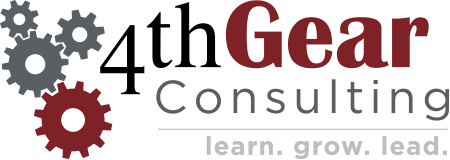This is part two of a five part series on becoming a better coach. Each article explores a different element of what it takes to help others accomplish more than they thought they could and become the kind of coach that can consistently build high performing teams and an unstoppable organization. You can read part one here.
A few weeks back I caught myself uttering the phrase “because I said so” to one of my kids. I immediately had one of those moments when you realize that you just did something you swore you would never do. I did it because it was quicker, and easier and I was focused on getting the task done, not helping my daughter.
Effective coaching is about building capability. It’s about creating in others the capacity to solve problems on their own, to think differently about solutions, and to examine their own thinking about any challenge they are facing. Too often, we make it about giving them the answer so they can get the task done, at the expense of creating the capability to accomplish that task, and others, better in the future.
Let me give you an example of the difference I have seen in managers I have worked with. The first manager we will call Scott. Scott was a phenomenal sales representative and was promoted to a management position because of his sales success. Scott’s approach to his team is to help them understand why he was successful and to encourage them to duplicate his best practices in order to achieve that same success for themselves. During a discussion at a sales meeting, the subject of building better client relationships comes up and Scott quickly begins recounting how he created those relationships during his sales career and gives lots of specific examples. One tactic that Scott used religiously was celebrating clients’ birthdays, complete with a cake that was delivered and a personal handwritten note from Scott. He insists that members of his sales team adopt this tactic for their own clients. There’s no doubt that some of the sales representatives on Scott’s team will use this approach to help them improve their connections with clients.
Elizabeth, another sales manager in the same company, handles this kind of discussion in a little different manner. When working with one of her sales representatives and coaching them on building relationships, Elizabeth asks the salesperson to take some time and come up with ten different ways that they might strengthen their relationships with clients. Then she asks the salesperson to figure out which of those ten ideas would bring the most value, which ones would they be able to execute effectively and which ones would they enjoy enough to consistently do well over the longer term.
Elizabeth routinely handles these kinds of conversations this way. Over time, her team members come to her with their list of ten items already prepared for discussion when they are working on ways to do things better. Would the same approach work for time management? What about organization, or making more effective cold calls? If one of Elizabeth’s salespeople ends up running a multi-million dollar company one day how do you think they will approach a challenge in their business? That’s the difference between knowledge, and capability. It’s the difference between someone knowing a new way to complete a task and having the capability to think differently about problems and apply what they already know about themselves to their solution. It’s the difference between telling and coaching.
Scott’s team will come to depend on him, and future managers, for the answer, Elizabeth’s team will depend on her to help them find their own best solution and develop their ability to execute it effectively. They quickly learn that the solution is their responsibility and they have to find it for themselves, because they are the ones that have to execute it.
Effective coaching is about asking the right questions and causing different thoughts. There’s nothing wrong with giving a few specific suggestions to get things moving but if you solve problems, rather than help others solve them for themselves, you can be sure you will have to solve another one for them tomorrow. It’s not easy, but you have to be patient, even when you are certain that you already know the best solution. The best coaches often deal with the frustration that others feel when they just want someone to give them the answer. Down the road, that turns into sincere thanks for helping them not just solve the current problem, but develop the capability to solve their future ones as well.
Our job as coaches is not just to help others do more today but to help them become capable of doing more throughout their career and their life. That’s worth working a little harder for. That’s also worth renewing my oath to never again use” because I said so” with my kids.
We develop better leaders so they can build a better future. Contact Us to learn about leader development via our training, workshops and executive coaching.


